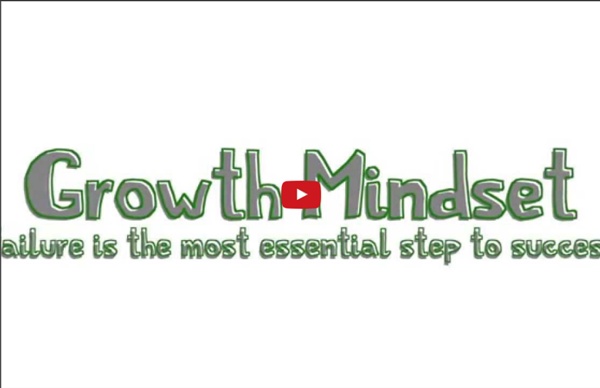



http://www.youtube.com/watch?v=-_oqghnxBmY
Related: Growth Mindset and Resilience • mrsevaparents.tvo How can we tell if a child will be successful in life? Are high grades an indicator? Or are there other factors that lead to your child’s success? Google Classroom Training Skip to content Skip to navigation Skip to login Beginning of dialog content User Settings End of dialog content Log In opens form dialog Help FAQ The Cost of Perfectionism — amandablesing.com So what does the cost of perfectionism mean? Well I tend to lump perfectionism right up there with procrastination and working too hard. While most people know that procrastination is not a good thing, most of us assume that hard work and perfectionism are great tactics. I tend to put them in the same bucket especially as they frequently go hand in hand. Does Your Child Have a Growth Mindset? - Jenni and Jody This week on POP Parenting Radio, we kicked off a new series on helping kids develop healthy habits with a look at creating healthy habits for the mind. Over the past year or so, Jody and I have been super interested in studying habits. I guess it started when we read the book The Power of Habit: Why We Do What We Do in Life and Business by Charles Duhigg. So much of what we do in life is driven by habit — and that can be both good and bad. So for the month of July, we are talking about helping kids develop good habits. Take a look at the schedule, and remember, you can always listen live at 9:00AM ET.
Instilling Perseverance in Children by Leah Davies, M.Ed. By Leah Davies, M.Ed. Perseverance means having the self-discipline to continue a task in spite of being confronted with difficulties. Albert Einstein said, “It’s not that I'm so smart, it’s just that I stay with problems longer.” The following are classroom activities that promote perseverance: 1. Lead a discussion on what perseverance means and does not mean.
10 Team-Building Games That Promote Collaborative Critical Thinking One of education’s primary goals is to groom the next generation of little humans to succeed in the “real world.” Yes, there are mounds of curricula they must master in a wide breadth of subjects, but education does not begin and end with a textbook or test. Other skills must be honed, too, not the least of which is how to get along with their peers and work well with others. This is not something that can be cultivated through rote memorization or with strategically placed posters. Students must be engaged and cooperation must be practiced, and often.
Three Things they Probably Didn’t Teach you at Business School — amandablesing.com 2. Undertake some failure practice Who knew that practicing failure could be so helpful? The Secret to Raising Smart Kids A brilliant student, Jonathan sailed through grade school. He completed his assignments easily and routinely earned As. Jonathan puzzled over why some of his classmates struggled, and his parents told him he had a special gift. In the seventh grade, however, Jonathan suddenly lost interest in school, refusing to do homework or study for tests. As a consequence, his grades plummeted.
21st Century Icebreakers: 11 Ways To Get To Know Your Students with Technology In honor of the start of a new school year, I am sharing one of my popular posts again with you with a couple of new additions! On Monday I will begin my new job. As I’ve mentioned before, I will be working as a Technology Resource Specialist as well as teaching a couple of classes. Feelings Inventory The following are words we use when we want to express a combination of emotional states and physical sensations. This list is neither exhaustive nor definitive. It is meant as a starting place to support anyone who wishes to engage in a process of deepening self-discovery and to facilitate greater understanding and connection between people. There are two parts to this list: feelings we may have when our needs are being met and feelings we may have when our needs are not being met. We also have a list of needs.
How Parents Talk About Failure Affects Children's Success Saying "That's OK, you're still good at writing" may not be the best strategy, researchers say. CAP/Getty Images hide caption toggle caption Critical Thinking - Making the most of your coursebook - ELT Connect I joined in yesterday in the Macmillan Education online conference and Ed Newbon’s webinar in particular on Critical Thinking Skills really got me, well…thinking. He argued that our role as teachers is changing, that nowadays it is not enough for students to only speak English, they need to have transferable skills for work, studies etc. Critical thinking is one of the skills that we can incorporate into the ELT classroom which can help students perform in the outside world.
Twelve Things You Were Not Taught in School About Creative Thinking 2382 516Share Synopsis Aspects of creative thinking that are not usually taught. 1. You are creative. The artist is not a special person, each one of us is a special kind of artist.